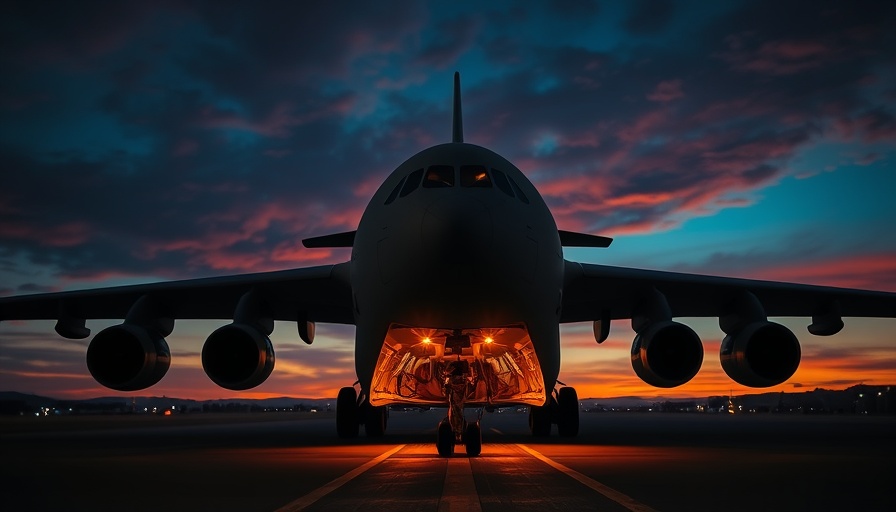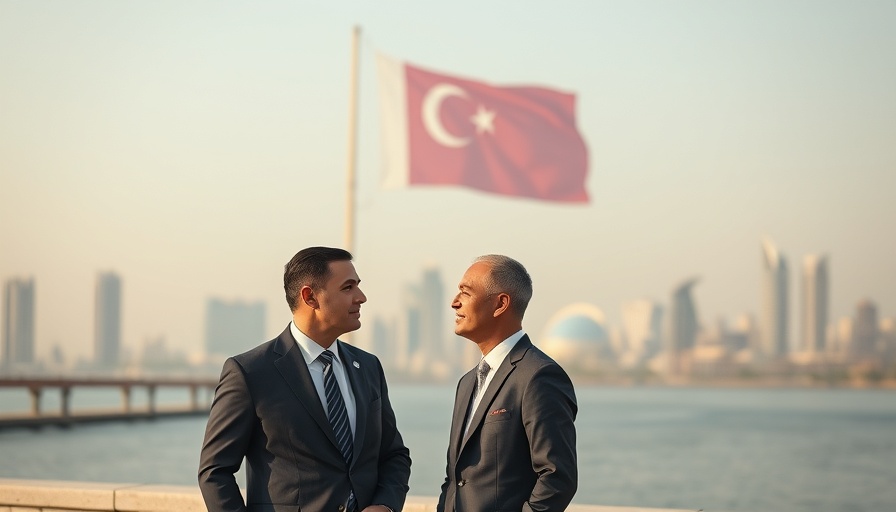
Israel's Aerial Aid Drops: A Robust Response to Misinformation
In a significant shift to counteract ongoing accusations of humanitarian neglect, Israel has resumed aerial aid drops over Gaza. This initiative is not just a logistical maneuver; it is a vital component of Israel's humanitarian efforts aimed at refuting claims of deliberate starvation amidst a complex and often contentious political landscape.
What Are the Implications of These Aid Drops?
The aerial delivery of food and supplies reflects a strategic attempt to alleviate the humanitarian crisis in Gaza while simultaneously addressing the narrative surrounding the Israeli-Palestinian conflict. These airdrops are coordinated by the Israel Defense Forces (IDF) and represent an effort to ensure that aid reaches those in need while countering the false narratives often propagated by Hamas and other adversaries.
Historical Context of Humanitarian Aid in Conflict Zones
Humanitarian aid in conflict zones is a complex and often contentious issue. Throughout history, aid has been weaponized in various conflicts, making it critical for providing assistance effectively and accurately. The resumption of Israel's aerial aid in Gaza follows a historical pattern of using humanitarian efforts to promote peace and stability while addressing propaganda that may distort public perception.
Israel's Strategy: Navigating Humanitarian Needs and Public Perception
As Israel faces allegations of incitement and misinformation, they recognize the importance of clear communication and action in fostering a positive image. This new mechanism not only serves the immediate needs of Gazans but also seeks to reshape the dialogues around Israeli military operations and their humanitarian intentions. Critics of Israel often highlight humanitarian issues, making these actions crucial in countering such narratives.
The Role of Faith-Based Organizations and Support Systems
For Christians and mission-minded individuals, understanding the humanitarian and spiritual dimensions of situations like these in Gaza is essential. Organizations and churches around the world often mobilize resources to support humanitarian efforts, reflecting a commitment to compassion and justice. These dynamics inform how global Christians can support those in need while advocating for peace and understanding in the region.
Future Predictions: Opportunities for Peace Through Humanitarian Aid
The ongoing situation in Gaza raises questions about future peace opportunities. Humanitarian efforts, like these aid drops, could potentially open channels for dialogue, indicating a willingness from all sides to engage in constructive conversations. As humanitarian conditions improve, there may be greater potential for collaboration, moving towards a more stable and peaceful environment.
Conclusion: The Stakes of Humanitarian Action
The resumption of aid drops over Gaza illustrates a critical juncture in how humanitarian efforts are interwoven with public perception and political realities. With the stakes high for the people of Gaza, understanding these dynamics is essential for any advocacy efforts or support from the global Christian community.
By staying informed and engaged with the evolving humanitarian landscape, believers and mission-minded individuals can better advocate for peace and justice in the region.
 Add Row
Add Row  Add
Add 








Write A Comment